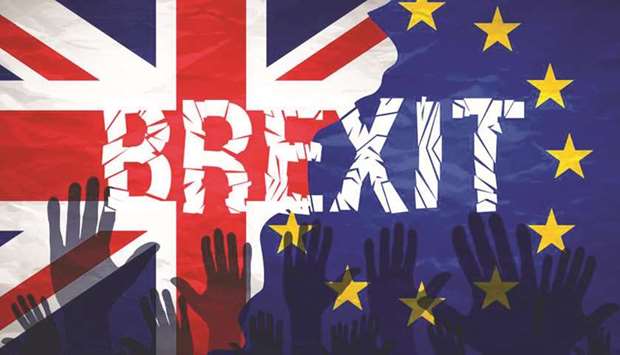Theresa May will not get her Brexit deal through the Commons, Donald Tusk has warned, leaving the UK with the option of “a chaotic Brexit” or an extension of its membership of the EU beyond March 29.
The European council president, to quell “speculation”, disclosed that, during private talks with the prime minister at a summit in Sharm el-Sheikh, he had walked through the legal process that would need to be followed to delay Brexit.
Tusk said it was not the EU’s “plan” to extend the two-year negotiation but that it was now evident to him that it was the “rational solution” in light of the prime minister’s failure to corral a majority behind the deal.
Shortly after Tusk spoke at a press conference together with the European commission president, Jean-Claude Juncker, at the end of the first EU-League of Arab states summit, May said they had a good meeting but insisted that she remained opposed to any delay.
“An extension to Article 50, a delay in this process, doesn’t deliver a decision in parliament, it doesn’t deliver a deal,” she said at a separate press conference. “All it does is precisely what the word ‘delay’ says. Any extension of Article 50 isn’t addressing the issues.
“We have it within our grasp. I’ve had a real sense from the meetings I’ve had here and the conversations I’ve had in recent days that we can achieve that deal.
“It’s within our grasp to leave with a deal on March 29 and that’s where all of my energies are going to be focused.”
May refused to say she would sack ministers if they vote tomorrow for an amendment tabled by former Labour and Conservative Cabinet ministers Yvette Cooper and Oliver Letwin, which would instruct May to seek an extension of Article 50 if she does not have a deal ratified by March 13.
“No one knows what (the motion) will say yet,” she said when asked directly if ministers could lose their jobs.
She signalled that it would be possible for MPs to vote on a withdrawal deal before it has been formally approved on March 22 by the EU.
“It would be possible to do it either way and I would hope that we have that meaningful vote by the 12th,” she said.
Earlier, Juncker spoke of “good progress” in drafting additional legal assurances about the temporary nature of the Irish backstop, following his meeting with May at the summit in Egypt.
But Tusk offered a far more sombre analysis of the domestic political position facing May, given the EU’s refusal to reopen the withdrawal agreement, or to set a time-limit or unilateral exit mechanism on the Irish backstop.
“I can say first of all that Prime Minster May and I discussed on Sunday a lot of issues, including the legal and procedural context of a potential extension,” Tusk told reporters. “For me, it’s absolutely clear that there is no majority in the House of Commons to approve a deal.
“We will face an alternative: a chaotic Brexit or extension. The less time there is until March 29, the greater the likelihood of an extension. And this is an objective fact, not our intention, not our plan – but an objective fact. I believe (that) in the situation we are in, an extension would be a rational solution.”
Tusk went on: “But Prime Minister May still believes that she is able to avoid this scenario. And I can assure you, and I did it in my meeting with Prime Minister May, that no matter in which scenario we will be, all the 27 will show maximum understanding and goodwill.”
The EU’s chief negotiator, Michel Barnier, is due to re-engage with the British team, including Downing Street’s senior Brexit adviser, Olly Robbins, and the Brexit secretary, Stephen Barclay, in Brussels today.
The two sides are drafting text that puts previous assurances of the temporary nature of the backstop, contained in letters from Tusk and Juncker late last year, into a legally-binding form.
The political declaration is being upgraded potentially to include further UK commitments on workers’ rights, and a document detailing the context in which a technological fix for the Irish border could supercede the all-UK customs union envisaged in the backstop is being worked upon.
“The president and the prime minister agreed on the need to conclude this work in time before the European council on March 21,” an official said after Juncker’s meeting with May.

